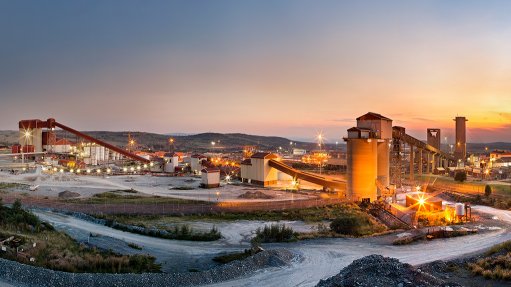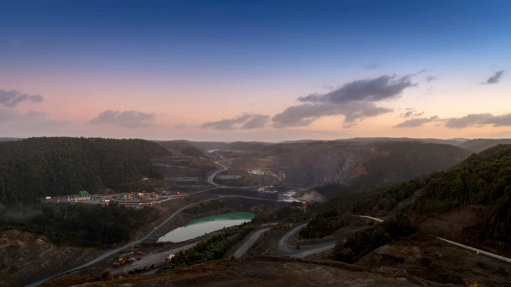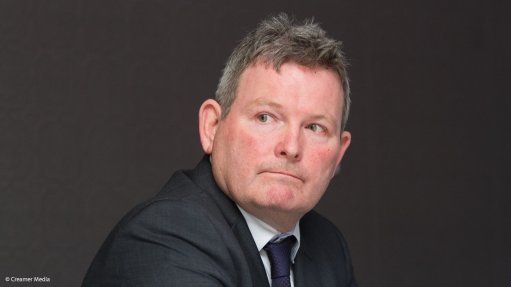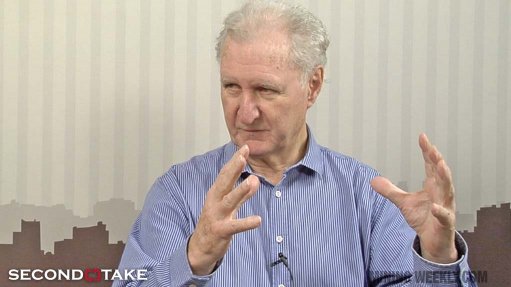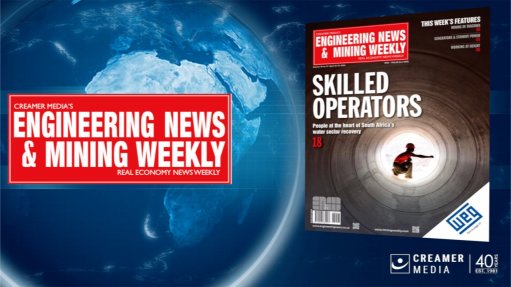CSMI stresses role of research to ensure policy, laws and practice support sustainable mining
South Africa needs to monitor whether policy, laws and practice are supporting its aim of sustainable development in mining and industry – and this is going to need more applied research across disciplines.
Such research is already under way at the Centre for Sustainability in Mining and Industry (CSMI), which is part of the School of Mining Engineering at the University of the Witwatersrand (Wits), in Johannesburg, and is being expanded as part of its new research focus in 2014.
“Having established itself over the last decade as an education and training centre of excellence in safety, health, environment and community engagement (SHEC), the CSMI is currently focused on accelerating its research mandate,” says programme manager Nancy Coulson.
The research not only meets the national need for reflecting on policies and strategies but also provides longevity for the training programmes at the CSMI.
The CSMI offers a range of SHEC-related courses at MSc and certificate level, as well as short courses for practitioners throughout Africa.
Matching its research areas with its educa-tional focus, the centre explores environment and sustainable development, occupational health and safety, as well as society and engagement.
“Each cluster supports a range of research. Also, we commit to understanding the links between each cluster and to collaborate with other centres which function outside our particular disciplines,” she says.
Governance and regulation are an important collective theme across clusters, so legislation and policy frequently come under scrutiny.
“We are scrutinising the Mine Health and Safety Act, for instance. As an example of outcomes-based health and safety legislation – which originated in the UK in the 1970s – this law has been implemented in South Africa now for the best part of 20 years. However, we need to examine how this type of legislation translates into the South African context,” says Coulson.
An important aspect of the Act was to entrench risk management and worker participation in the daily practice of mining operations. The CSMI has two PhD students registered in this field of work to examine if the law’s outcomes are, in fact, unfolding in the way that was envisaged by legislators.
“Most of the research in this field is coming from the UK, Canada and Australia, while very little is being done locally, which presents a huge opportunity to the centre. Therefore, the CSMI is initiating applied research that could inform the ongoing assessment of South Africa’s laws and policy. What we’ve observed is that amendments to the Act get recommended, but there is insufficient underpinning research to validate proposals,” Coulson adds.
The applied nature of the research is vital to the CSMI mandate, as it needs to feed into the policy process and help define solutions to challenges facing the mining industry and society.
“We are clear that our research should be interdisciplinary as the solutions to many of the sustainability issues cannot be generated only from one discipline. We need to continue working across disciplines and the CSMI prides itself on highlighting the links between traditionally separate fields of investigation,” she says.
Managing the environment, another key focus area for the centre, is also being researched in terms of regulatory effectiveness. The impact of mining on the environment has always been regulated on an operation-by-operation basis, as each site must ensure that its activities comply with its particular licence requirements.
“This does not necessarily translate into the best management of the environment because the natural environment is more commonly a regional issue. You get ‘mining intensity’ in many regions, such as Mpumalanga or Rustenburg, in the North West, yet our regulations are not enabling us to manage this regional environment effectively.
“One approach to understanding how the regional impacts of mining might be better managed over time is by examining changes to the landscape. We have a PhD candidate registered in this area, whose research focuses on the impact of mining on the landscape of Welkom, in the Free State, using geographical information systems to track the changes since before gold was mined there,” she notes.
The multidisciplinary focus is also import-ant. In the Welkom study, for example, the research will consider the changes not only in the environment but also in human settlement patterns, as well as what communities in that area report and remember about the changes over time.
To do this, the CSMI collaborates with research groups, such as the Society, Work and Development Institute – also based at Wits University – to tap into the methods used in working with communities and the institute’s body of knowledge on how communities in South Africa are shaped.
“We do this because, while there are natural limits to what you can extract from nature, that’s not the only important aspect of sustain- ability. We also need to talk about a sustain- able society, sustainable communities and sustainable business models,” Coulson says.
Stakeholder engagement is another key research focus.
“One form of engagement we’ll be considering is artisanal and small-scale mining (ASM), which is getting more attention now in Southern Africa. The sector is not only a source of livelihood in many communities but also precarious and sometimes characterised by conflict. This may occur where a licence is awarded to a company by government on a site where artisanal miners are already operating. Artisanal miners are often considered as a significant social risk for large-scale mining companies,” she states.
The ASM research will not be limited to South Africa but will extend to other Southern African Development Community countries. The CSMI’s researchers have done substantial work on ASM in the Democratic Republic of Congo, in the context of under-standing stakeholder engagement and corporate social responsibility.
Comments
Press Office
Announcements
What's On
Subscribe to improve your user experience...
Option 1 (equivalent of R125 a month):
Receive a weekly copy of Creamer Media's Engineering News & Mining Weekly magazine
(print copy for those in South Africa and e-magazine for those outside of South Africa)
Receive daily email newsletters
Access to full search results
Access archive of magazine back copies
Access to Projects in Progress
Access to ONE Research Report of your choice in PDF format
Option 2 (equivalent of R375 a month):
All benefits from Option 1
PLUS
Access to Creamer Media's Research Channel Africa for ALL Research Reports, in PDF format, on various industrial and mining sectors
including Electricity; Water; Energy Transition; Hydrogen; Roads, Rail and Ports; Coal; Gold; Platinum; Battery Metals; etc.
Already a subscriber?
Forgotten your password?
Receive weekly copy of Creamer Media's Engineering News & Mining Weekly magazine (print copy for those in South Africa and e-magazine for those outside of South Africa)
➕
Recieve daily email newsletters
➕
Access to full search results
➕
Access archive of magazine back copies
➕
Access to Projects in Progress
➕
Access to ONE Research Report of your choice in PDF format
RESEARCH CHANNEL AFRICA
R4500 (equivalent of R375 a month)
SUBSCRIBEAll benefits from Option 1
➕
Access to Creamer Media's Research Channel Africa for ALL Research Reports on various industrial and mining sectors, in PDF format, including on:
Electricity
➕
Water
➕
Energy Transition
➕
Hydrogen
➕
Roads, Rail and Ports
➕
Coal
➕
Gold
➕
Platinum
➕
Battery Metals
➕
etc.
Receive all benefits from Option 1 or Option 2 delivered to numerous people at your company
➕
Multiple User names and Passwords for simultaneous log-ins
➕
Intranet integration access to all in your organisation






